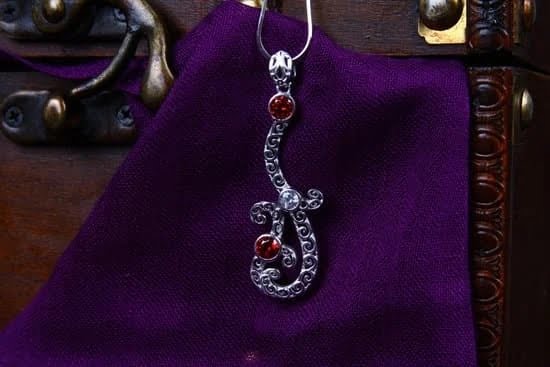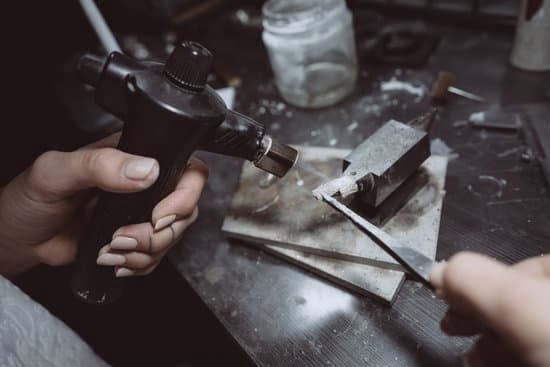Introduction
Jewelry making suppliers offer a great way to get the supplies needed to create custom, unique jewelry designs. Working with reliable suppliers can save both time and money, while allowing you to experiment with new ideas and trends in jewelry making. Not only do they make it easier to purchase the specific components necessary for a project, but the range of items on offer from these suppliers also makes it possible to create one-of-a-kind pieces that stand out from the crowd.
The benefits of working with jewelry making suppliers are numerous. For one, many jewelry supply stores specialize in offering items of higher quality than what is normally found in craft stores or online marketplaces like Etsy. They often feature components made from precious metals and stones that provide a foundation for truly dazzling pieces. In addition, these suppliers also typically offer competitive prices and a wider selection than can be found near one’s home town or city. Many even provide customer support or advice on the best tools and materials needed for projects, along with tutorials that help guide new designers through the creative process step by step. Finally, working with a well established supplier gives jewellery artists peace of mind knowing their products have passed rigorous quality testing and come backed by a satisfaction guarantee”making them far more reliable than individual sellers who may not always have the expertise that comes from long term experience in the industry.
Types of Supplies Available
Jewelry making supplies can vary depending on the type of jewelry being created. Generally, the most common type of supplies needed for creating jewelry include beads, charms, chains, clasps and findings, charms/pendants, tools and wire/thread/string. Beads are usually categorized by material (e.g., crystal, wood), shape (e.g., round, tube) or finish (e.g., matte, glossy). Chains are typi ally made of metal such as silver or gold and come in various lengths and thicknesses. Clasps are used to secure necklaces and bracelets. Findings refer to components such as lobster clasps and jump rings used to connect or fasten two or more pieces together. Charms and pendants are decorative items that are typically added to keychains or dangle from a chain necklace or bracelet. Tools may include pliers, crimpers, cutters and specialized stamps that are used for imprinting designs onto metal jewelry pieces. Finally, wire/thread/string is typically used to help attach components to one another when making bracelets or necklaces”the most popular types of string materials include nylon cat gut (ideal for knotting) and elastic cord (ideal for stretchy jewelry).
Where to Research & Find Suppliers
When it comes to finding jewelry making suppliers, it is best to do your research before committing to any supplier. There are a number of different avenues one can take in order to look into potential jewelry suppliers. One option is to conduct an online search using specific keywords that relate to the type of jewelry you would like to create. During this process, try searching for reviews from past customers and be aware of any complaints about their products or services. Another viable source for finding suppliers is through trade shows and conventions where you can connect with people from all over the world who have experience in the field of jewelry-making. You may also wish to get in touch with local artisans and artists who may know of reliable sources for supplies. Additionally, browse jewelry magazines, catalogs, and websites as these often contain valuable information that could help in your search. Finally, many retailers or companies will have information regarding their own preferred vendors which could provide further insight into available resources.
Comparing Quality of Supplies
One of the most important aspects of jewelry making is finding quality suppliers that have a selection of high-grade supplies at affordable prices. Depending on the type of jewelry you are making and your individual preferences, the materials and findings from different vendors can vary widely. Because it’s so important to know the difference between quality products and poor materials, it is essential to compare suppliers for different types of jewelry supplies.
When comparing jewelry making suppliers, research their reputation with previous customers by reading reviews, or talk to those in the industry who may have experience working with certain brands. Additionally, ask vendors specific questions regarding the quality of their materials and how they source them ” this will help you to better understand if they are producing high-grade items that meet your expectations. It is also important to get details about return policies, shipping costs as well as turnaround time so that you are working with reliable companies who will be able to promptly fulfill your orders. Finally, look out for discounts or special offers since these might save you money in the long run. With thorough research and planning, it will be easy to find a supplier who has an excellent selection of quality jewelry-making products at reasonable prices.
Pros & Cons of Different Suppliers
Pros of Online Suppliers: There are many advantages to buying supplies from online suppliers. First, online suppliers usually have a wide selection of supplies at discounted prices. Second, with the help of curated product reviews, it is easy for shoppers to find what materials satisfy their needs without having to physically shop around. Third, online shopping is often fast and convenient which makes it possible for jewelry makers to get the supplies they need quickly.
Cons of Online Suppliers: While there are many advantages to buying supplies from an online supplier, some drawbacks must also be taken into consideration. One disadvantage includes purchasing items that do not meet expectations due to inaccurate photos or descriptions on the website. Additionally, some sizes, colors, and styles may not be available unless they are custom ordered in advance which can lead to delays in completing jewelry making projects. Lastly, returns and exchanges may become a hassle when an item does not fit or meets individual’s expectation after delivery.
Shopping Tips & Strategies
It’s important to find reliable jewelry making suppliers you can trust. Before purchasing supplies, do your research to ensure the supplier is legitimate and offers quality products. Check online reviews from other jewelry makers, read product descriptions carefully, and get in touch with the supplier directly to ask questions or clarify any details. Additionally, many jewelry making suppliers offer educational materials such as tutorials and project ideas that may help answer some of your queries. Look out for discounts or special offers ” many suppliers have sales throughout certain times of year. Be sure to compare prices between different suppliers if you’re looking for a particular item as prices can vary significantly. Finally, don’t forget to factor in delivery costs when budgeting for your jewelry supplies!
Reputation & Reliability of Suppliers
When it comes to jewelry making supplies, the reputation and reliability of suppliers are very important. If you don’t find a reliable source for quality materials, your finished product can suffer in quality or lack the correct components. A good supplier should have a strong track record, provide helpful customer service and offer competitive prices so you don’t get gouged. You also want a supplier that is trustworthy with secure payment methods and transparent pricing to ensure everything stays within your budget. Furthermore, they should back up their products with satisfaction guarantees in case something is not perfect or as advertised. Lastly, an established supplier should be knowledgeable about all the latest trends and technological advances to help you stay ahead of the competition. Doing all these things will result in a great reputation which potential customers will recognize and appreciate when shopping for jewelry-making supplies.
Cost Considerations
When considering what jewelry making supplies to purchase, it is important to factor in the cost. Supplies such as metal sheets, wire, and beads may vary in price depending on the type of material used and where it is purchased from. Tools such as pliers, cutters, and saws may also vary in cost; for example, high-quality tools will tend to be more expensive compared to basic or entry-level tools. It’s a good idea to research different suppliers and compare prices when shopping around for jewelry making supplies. Additionally, some suppliers offer discounts or bulk buy options where purchasing items as a set can save money in the long run. Lastly, shipping costs should also be factored into overall purchase considerations as they can add up quickly if multiple orders are placed with separate vendors.
Conclusion
Choosing the best jewelry making suppliers is essential for successfully creating quality jewelry pieces. Be sure to research each of your potential suppliers thoroughly, as well as their cost, delivery times, and customer service abilities. It’s also important to ask their current customers about any issues they’ve had with their supplies or services. Similarly, you should consider environmental sustainability when selecting a supplier; look for companies that use eco-friendly materials and operate in an environmentally responsible manner. Additionally, evaluate the size of your orders and order frequencies when choosing a supplier. By being mindful of these criteria throughout the selection process, you can ensure that you find the best supplier for your jewelry-making needs.

Welcome to my jewelry blog! My name is Sarah and I am the owner of this blog.
I love making jewelry and sharing my creations with others.
So whether you’re someone who loves wearing jewelry yourself or simply enjoys learning about it, be sure to check out my blog for insightful posts on everything related to this exciting topic!





